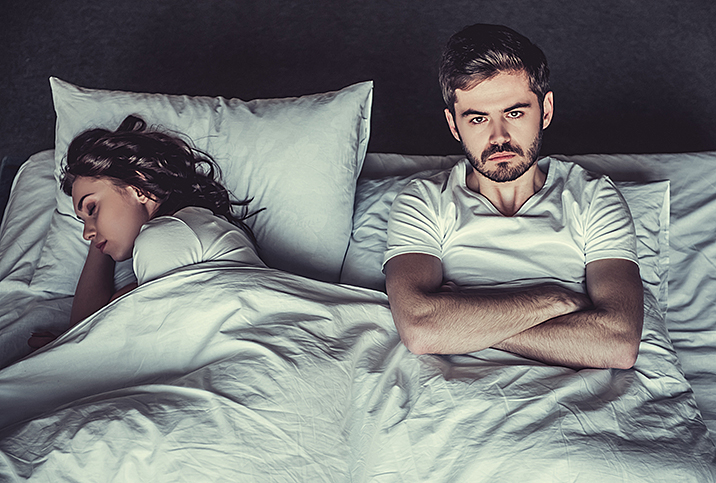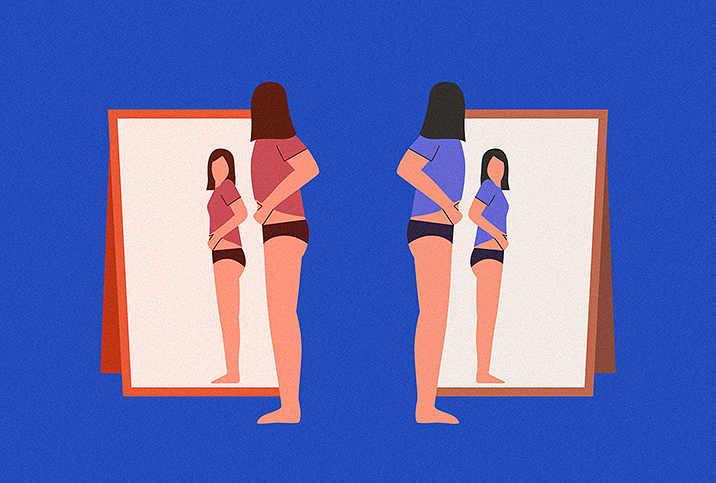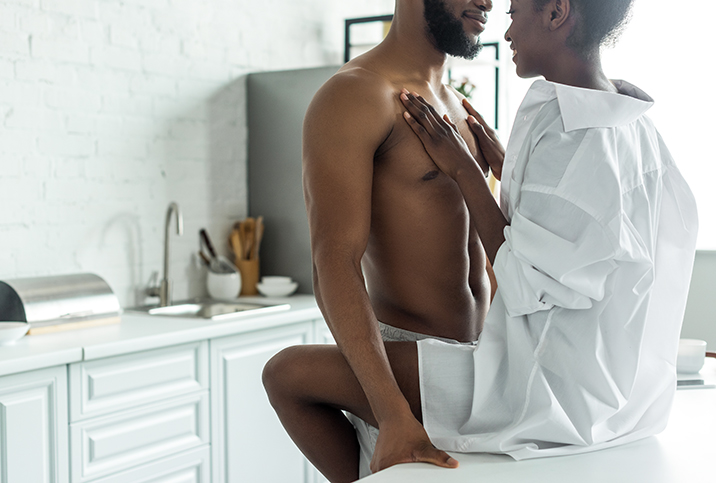Overcoming Sexual Performance Anxiety

One of the main contributing factors to performance issues in the bedroom is anxiety, or as it's better known, performance anxiety.
Sexual performance anxiety refers to a state of agitation, apprehension, nervousness and even fear about intercourse and intimacy. In essence, it is an excessive and exaggerated concern about a person's own performance during sexual activity. As with other types of performance anxiety, this condition is often persistent, unpleasant and capable of affecting individuals of all ages.
When sexual anxiety is present, a person will anticipate intimate encounters as insurmountable catastrophes. The anxious brain imagines the worst possible scenarios, and as a consequence they may feel overwhelmed, rendering themselves unable to achieve satisfactory performance in the bedroom.
Who and how?
"It is not unusual to occasionally experience sexual performance problems," said Monica Valero, a clinical psychologist and sex therapist. "It happens whether we're dating someone new or whether we have a long-standing relationship. The problem occurs when sexual anxiety becomes excessively frequent and hijacks our intimacy. If anxiety stifles desire and arousal, then it should be addressed as soon as possible."
Sexual performance anxiety usually manifests with cognitive, physiological and emotional symptoms. Cognitively, individuals present innumerable hypercritical and disqualifying thoughts. Psychologist and sex therapist Valero León explained that the inner dialogue focuses on negative expressions, such as: I will never be able to meet my partner's expectations; I do not have an attractive body; I am not masculine enough; I am not a good lover; I will ejaculate prematurely; the size of my penis is not adequate; my partner will ridicule me; my breasts are not desirable, among others.
With relation to physiological symptoms, both sexes can present a significant decrease in their sexual desires. León pointed out that, in the case of women, the most common consequences include "difficulty in arousal, lubrication problems and, as a result, discomfort and coital pain." Whereas men "may experience inability to achieve a consistent erection, or have problems with ejaculatory control."
Physical symptoms may also include facial pallor, chest pain, lightheadedness, pounding heart, choking, tingling, muscle tension, dizziness, hyperventilation, tremors and general weakness.
In addition, there are the symptoms that occur at the emotional level, such as a sense of loss of control, fear, insecurity, frustration, impotence, lack of concentration, apprehension, guilt, anguish, shock, and feelings of failure and worthlessness.
Between anxiety and sexual performance, there is a complex and vicious interrelationship. As levels of sexual anxiety increase, physiological symptoms are likely to be generated. In turn, as physiological symptoms manifest, it is likely sexual anxiety levels will increase and be reinforced.
Ángela Díaz, a psychologist and professor at the Faculty of Social Sciences of the UAM in Venezuela, explained sexual performance anxiety is considered a vicious cycle since the psychological and physical factors involved in the process are in a kind of feedback loop. "In this case, the limiting beliefs help to consolidate the sexual failure and the sexual failure helps to consolidate the 'self-prophecy' of failure," she said. "When the mind is busy rehashing the negative experiences over and over again, it becomes quite likely that the person will have dysfunctions, thus reinforcing the initial thought and maintaining the cycle."
Factors that generate performance anxiety
Body image
People with sexual anxiety often have a strong fixation on the physical defects they perceive in their appearance. So far it has been proven that dissatisfaction with your own body can become a cognitive distraction that affects sexual response. "Today's society is highly infected by narcissism, the cult of beauty and the idea of eternal youth," Díaz said. "Many women are embarrassed by their weight, just as many men are intimidated by their lack of musculature or their penis size. This situation of 'rejection' of their own body image is detrimental to eroticism and sensuality."
Unreasonable expectations about sexuality
Most individuals with sexual anxiety tend to impose very high performance standards on themselves, often inspired by pornography. These extremely high expectations produce serious distortions in the orientation and experience of sexuality.
Incisive and continuous self-criticism
In the process of judging oneself too harshly, a person will minimize their positive aspects and maximize their negative aspects. They tend to perceive themselves as unworthy and may develop a marked inferiority complex.
The role of the spectator
At some point during intercourse, the person with sexual anxiety adopts a role of self-observation. What happens here is an individual in full sexual performance disconnects from sensations and stimuli, and focuses on an attitude of hypervigilance.
"The subject with anxiety stops paying attention to intercourse itself to assume an attitude of observation, vigilance and control," León said. "Instead of surrendering to the moment and abandoning oneself to pleasure, the person insists on evaluating how the sexual function is being performed. This self-observation is given by the internal pressure that is imposed."
Recommendations to alleviate sexual performance anxiety
Awareness
Becoming aware of sexual anxiety is the first step to healing. Sexual anxiety is often prolonged and aggravated because individuals tend to deny the reality, either out of embarrassment or discomfort.
Diaphragmatic breathing
An anxious brain can trigger a cycle of worry before, during and after intercourse. However, diaphragmatic or abdominal breathing has been shown to improve concentration, physical performance and intimacy. "In the first stage of the sexual approach, deep and controlled breathing will help the anxious person focus on sensations, on stimulation—on the present moment," León said. "Conscious breathing is a key to having a better sexual experience."
Exercise routine
The practice of physically exercising for 35 to 45 minutes at least three times a week can reduce levels of sexual anxiety. In terms of physical health, regular exercise improves the functioning of the cardiovascular, circulatory, locomotor, metabolic and nervous systems. With regard to psychological health, sports practice directly influences emotional well-being and self-confidence. Almost any type of sporting routine can improve mood, appease intrusive thoughts and decrease feelings of inner pressure.
Emotional intimacy
Couples who develop genuine emotional rapport usually achieve a more satisfying sex life. Sexual intercourse is usually more pleasurable when both partners have cultivated a meaningful closeness.
Professional help
In the face of persistent sexual difficulties, it's essential to seek the guidance and support of health professionals. To start, it's recommended the person consult with a clinician in order to rule out potential physical root causes (cardiovascular diseases, hormonal changes and the effects of aging).
"Once the sexual anxiety condition has been diagnosed, [the person] is most likely to [use] psychotherapy or cognitive behavioral therapy," Díaz said. "The intervention will have the purpose of addressing and dismissing limiting beliefs, as well as restructuring the negative internal dialogue. Early intervention can prevent many frustrations and disappointments."


















